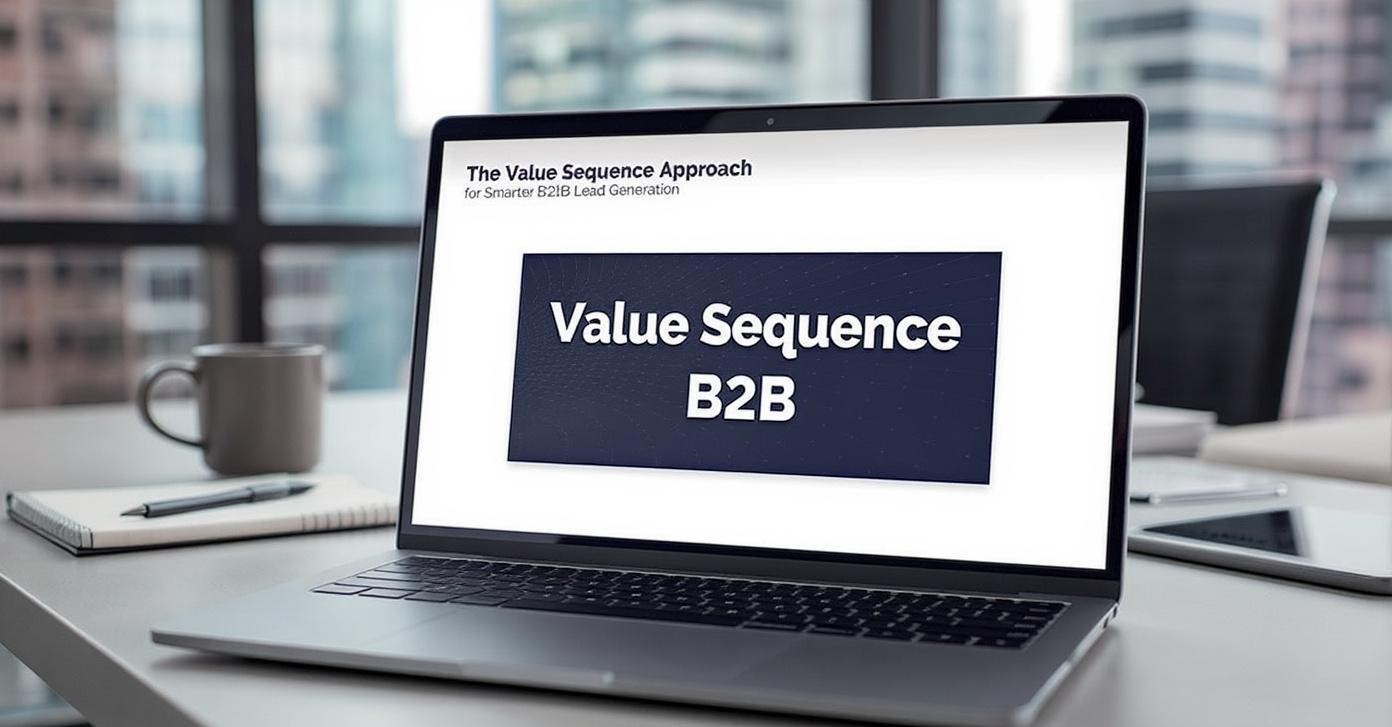In today’s competitive B2B market, businesses need more than traditional outreach to generate quality leads. B2B Lead Generation now demands a strategic approach that delivers consistent, relevant, and actionable value throughout the buyer journey. The Structured Value Sequence Approach is a proven framework that guides prospects through a series of meaningful interactions, each designed to build trust, nurture engagement, and move leads closer to conversion. By combining personalization, multi-channel strategies, and data-driven insights, businesses can maximize the effectiveness of their lead generation campaigns and create long-term relationships with their audience.
Understanding Structured Value Sequences
Structured Value Sequences are designed to provide incremental value at each stage of the buyer journey. Typically, the sequence includes Awareness, Engagement, Consideration, and Decision stages. In Awareness, businesses introduce their expertise through educational content, research insights, and thought leadership. Engagement focuses on providing actionable solutions to address the prospect’s challenges. Consideration involves presenting case studies, testimonials, and ROI analyses to demonstrate credibility. Finally, the Decision stage offers personalized consultations, demos, or proposals to facilitate conversion. Each stage builds on the previous one, ensuring that prospects receive a cohesive, value-driven experience.
From Traditional Lead Generation to Strategic Engagement
Traditional B2B Lead Generation often emphasizes quantity over quality, relying on mass emails and generic campaigns. While these approaches may generate leads, they often fail to create meaningful engagement. The Structured Value Sequence Approach shifts the focus to delivering relevant, timely, and personalized content tailored to the prospect’s role, industry, and stage in the buying journey. This approach enhances engagement, reduces drop-off rates, and positions the brand as a trusted advisor rather than a vendor.
Designing Effective Value Sequences
Effective Structured Value Sequences begin with a clear understanding of the target audience, their pain points, and decision-making process. Multi-channel strategies ensure that prospects receive consistent value across email, social media, webinars, blogs, and landing pages. Email campaigns nurture leads with targeted content, social media expands brand visibility, webinars provide interactive engagement, and landing pages serve as conversion points. By creating a structured progression of interactions, businesses can maintain engagement, build credibility, and guide prospects toward taking action.
Personalization and Relevance
Personalization is a critical element of Structured Value Sequences. It involves tailoring content and messaging to the prospect’s role, industry, and previous interactions. For example, a sales executive may value insights on pipeline efficiency, while a marketing manager may seek strategies for lead nurturing. Personalized sequences enhance engagement, build trust, and increase the likelihood of conversion. By delivering content that resonates with the prospect’s specific needs, businesses can differentiate themselves from competitors and establish stronger connections.
Data-Driven Optimization
Data is essential for optimizing Structured Value Sequences. Engagement metrics such as email open rates, click-through rates, content downloads, and webinar participation provide insights into which interactions are most effective. Predictive analytics can help identify high-potential leads, enabling marketing teams to focus resources efficiently. Continuous testing of content, messaging, and sequence timing ensures that sequences remain relevant and impactful. Data-driven optimization enhances the efficiency of B2B Lead Generation and improves overall ROI.
Marketing Automation for Scalability
Marketing automation platforms are crucial for scaling Structured Value Sequences. Platforms like HubSpot, Marketo, and Pardot allow marketers to automate workflows, segment audiences, and trigger personalized interactions based on prospect behavior. Automation ensures consistent execution of sequences while allowing teams to focus on strategy, content creation, and analysis. Real-time triggers respond to prospect actions such as content downloads or event participation, guiding them to the next step in the sequence. This approach ensures timely, relevant engagement and increases conversion rates.
Sales and Marketing Alignment
Structured Value Sequences foster alignment between sales and marketing teams. With visibility into prospect interactions and sequence progress, both teams can collaborate effectively. Marketing identifies when leads are ready for handoff, and sales approaches prospects with insights from previous interactions. This alignment reduces friction, improves conversion rates, and ensures that prospects experience a consistent, value-driven engagement. A unified approach strengthens B2B Lead Generation and enhances overall revenue performance.
Measuring Sequence Effectiveness
The effectiveness of Structured Value Sequences is measured through both quantitative and qualitative metrics. Quantitative measures include sequence completion rates, engagement depth, lead quality, and conversion velocity. Qualitative metrics, such as prospect sentiment and brand perception, provide insight into how effectively trust and credibility are established. Continuous monitoring and analysis allow marketers to refine sequences, improve engagement, and maximize the impact of B2B Lead Generation initiatives.
Enhancing the Buyer Experience
The ultimate goal of Structured Value Sequences is to enhance the buyer experience by delivering relevant, actionable, and personalized value at every stage of the journey. This approach transforms B2B Lead Generation from a transactional activity into a strategic process that nurtures, educates, and empowers prospects. By guiding prospects through a well-structured, value-driven journey, businesses can increase engagement, build trust, and drive higher conversion rates, ultimately creating loyal customers and long-term advocates.
Read Full Article : https://acceligize.com/featured-blogs/the-value-sequence-approach-for-smarter-b2b-lead-generation/
About Us : Acceligize is a global B2B demand generation and technology marketing company helping brands connect with qualified audiences through data-driven strategies. Founded in 2016, it delivers end-to-end lead generation, content syndication, and account-based marketing solutions powered by technology, creativity, and compliance.


